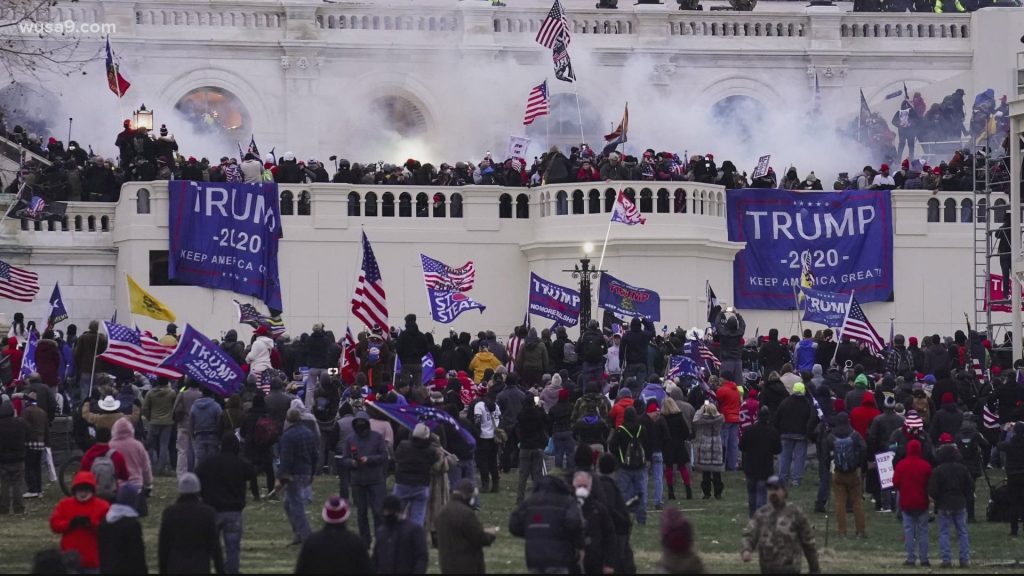This is Part 6 of an ongoing series.
First of all, it should be noted that the shocking images from the storming of the Capitol on January 6 are going to be used against our efforts to restore constitutional government and to clean up our compromised and corrupted institutions for years to come. It was a sad day for the country, with five people (including one law enforcement officer) dead, plus the suicide of a Capitol police officer. Those who broke the law during the course of those events must be punished, no matter who they are.
 That is a crucial understanding that is part of this next lesson from 2020. While fraud and the failure to follow the law and the Constitution had a clear impact on this election and created a massive appearance of impropriety when combined with the denial of transparency in the contested states, there were plenty of other mistakes on the part of President Trump and his team that made this election close enough for the irregularities to matter. This is not to diminish the many accomplishments Trump can rightly boast of, but there are objective conditions and factors that we must consider.
That is a crucial understanding that is part of this next lesson from 2020. While fraud and the failure to follow the law and the Constitution had a clear impact on this election and created a massive appearance of impropriety when combined with the denial of transparency in the contested states, there were plenty of other mistakes on the part of President Trump and his team that made this election close enough for the irregularities to matter. This is not to diminish the many accomplishments Trump can rightly boast of, but there are objective conditions and factors that we must consider.
We covered a number of the other issues elsewhere, including mistakes in personnel, planning failures, not taking battlefield preparation into account, failing to anticipate attacks, and poorly-considered ways of delivering the message. A common thread runs through all of these issues – it’s a misreading at best of what the situation was, if not complacency, or worse, outright denial and/or willful blindness.
It has long been said that one can’t get to where they are going if they don’t know where they are. That means that a campaign needs to have as clear an understanding of the situation as they possibly can at all times – at the start of a campaign, during the campaign, and in the time between winning an election and taking office. This is a time to evaluate the objective conditions, as opposed to taking a best-case scenario. Candidates need to have an accurate assessment of what the situation is, or they end up going into a fight for the future of their community, state, or even country, blind. That is a certain way to fail.
One of the biggest keys is to find out all the data from past elections and to ensure the data is reliable. But it is more than just paying someone like Richard Baris to crunch the numbers. There also has to be an understanding of the issues, how the electorate feels about those issues and an honest assessment of how much the electorate’s feelings overlap with the candidate’s positions. For instance, support for the Second Amendment will require a very different approach for a candidate running in Philadelphia’s suburbs than for a rural Alabama candidate.
Knowing the laws governing elections is also crucial. If a candidate knows the process, they can protect not just themself, but also those who cast votes for them, work on the campaign, and raise money. Knowing what the limits are can help a candidate avoid scandals – or worse. This could be very crucial in a state where officials show a tendency to abuse power.
For example, a candidate running for office in Michigan will likely have to deal with the fact that officials like governor Gretchen Whitmer, attorney general Dana Nessel, and secretary of state, Jocelyn Benson will play for keeps and have no compunction about breaking norms or unilaterally acting – essentially usurping power from the legislature. In Florida, though, while a candidate will not have to worry about an unfair system, they will have to invest strongly in Spanish-language media in addition to English-language media. In Washington state, the universal vote-by-mail system must be factored in
Candidates must also know which media outlets are fair and will report the facts, and which outlets are biased and for all intents and purposes acting as stenographers for the establishment. Finding alternative ways to get the message out will also be important, whether through talk radio, free-speech friendly social media like Parler, MeWe, Gab, and Rumble, or through e-mail newsletters to mitigate censorship from Big Tech.
Those who are working as grassroots activists will also have to understand what the present situation is and accept it. If, as Larry Schweikart postulated, federalism failed, then activists at the grassroots level need to figure out how and why it failed. Much of that answer will likely be found in the people who were in place as opposed to the system itself.
A system can be only as good as the people running it – and the failures come not just from those who abuse power but those who fail to use their powers to address abuse. As has often been learned to our frustration and sorrow these last two and half months, the letter “R” behind the name doesn’t always indicate a fighter, and a fighting spirit doesn’t guarantee tactical and strategic competence.
There may be any number of reasons for that failure. Some could very well be intimidated by the prospect of harassment by the likes of Antifa. Those who have stood up, whether Wayne County Republicans, lawyers, or elected officials, have faced threats of retaliation. Even Josh Hawley, who objected to certifications from Arizona and Pennsylvania, faced intimidation and retaliation. His wife had Antifa show up on her front door while Hawley was in Missouri, while Simon and Schuster canceled his book contract.
For others, it may have been a matter of pursuing or balancing other priorities. For instance, Mitch McConnell tried to save Georgia’s two Senate seats – that was part of his responsibility as the leader of the Republicans in the Senate. He was trying to do so in close runoff elections in a state where the Georgia Republican Party had to sue a Republican secretary of state to follow the law. Now, McConnell’s refusal to get the $2,000 checks passed ended up wrecking that endeavor, but he wasn’t the only one who bears the blame for Georgia. Trump himself firmly rebuked the other major reason during those runoffs.
 There need to be some very hard “family conversations” about the conduct of some on our side on a similar front. In some cases, elected officials, some seeking higher office, have made statements that are counter-productive at best. We’ve even had some entities promise action was coming… and they got people to sit and wait rather than to engage in the necessary grassroots activism to win elections or have an effect on legislation. Other figures made big promises but have delivered precious little in terms of results to date.
There need to be some very hard “family conversations” about the conduct of some on our side on a similar front. In some cases, elected officials, some seeking higher office, have made statements that are counter-productive at best. We’ve even had some entities promise action was coming… and they got people to sit and wait rather than to engage in the necessary grassroots activism to win elections or have an effect on legislation. Other figures made big promises but have delivered precious little in terms of results to date.
Of course, the conversations must also discuss those who sat on the sidelines in the momentous fights over the last six weeks while tens of millions of Americans wonder if their votes were properly counted. The fact is, many Americans have had their faith in the system shaken, if not shattered, and getting them to remain involved will be extremely difficult, especially when they rightly question whether those asking for their vote will fight for them.
The situation is pretty grim. What should have been a solid re-election, if not a landslide, was in all probability, lost, and the other side will claim it was “fair and square” through thin veneers of legal technicalities, pre-election court rulings, and using the events at the Capitol to suppress any discussion of the very real questions surrounding mail-in voting, the need for transparency in elections, and a host of other questions surrounding this election that may never be honestly answered.
That being said, putting things right is still quite possible. We will have to understand that reclaiming our government from the Swamp was never going to be a long, unbroken string of victories. Setbacks were going to happen, we are often at the mercy of events outside our control, and those are two things we will have to deal with. The ultimate reality is this: As long as we fight for freedom, we have a chance. We just have to fight smart to make the most of the chances we have.
Harold Hutchison has nearly two decades of experience covering a variety of topics, including politics, national security affairs, foreign policy, Second Amendment issues, and sports. He has been published in numerous media outlets, including National Review, the Daily Caller, the Patriot Post, Ammoland.com, and the Washington Examiner.



